In situ
Thread
Residency at the Sinthian Cultural Center in Senegal
"The shadow is the queen of colors" - Derek Jarman, Chroma
I lived at Thread in the village of Sinthian, near the Gambia River and the border with Mali, for a month. Temperatures would reach 43 degrees, necessitating a morning walk. I started collecting the wooden sticks that proliferated in the entrance to the village. This harvest allowed me to approach houses and discover the day-to-day lives of their inhabitants. It was simultaneously accompanied by a mental harvest of found objects: a solar radio, a fishbowl, a metal grill, an old antenna, feathers. I assembled and reconstructed these images like architectural miniatures, fictional transportable maquettes or protective objects. Sun Traps is a series of self-supporting structures based on the elements that formed the space of the threshold.
I then travelled to meet Babakar Gueye, the artisan welder who built the doors and windows of the village’s dwellings. His studio, under the open sky, was shaded by a tree. Basing myself on traditional motifs and his own technical vocabulary, I created a cube composed of a pattern of different grills, like the six faces of a die. Transporting this cube with me in order to discover new uses for it, I learned from the villagers that “doumbouru” is an ancient word with different meanings, used to define an object capable of protecting or housing something. Doumbouru is the only object I brought back to Belgium.
The last action I carried out during my residency happened the night before my departure. Having kept all my plastic water bottles throughout my stay, I sewed them together with palm leaves. A large empty tower touches the blue sky in the centre of the village’s circular courtyard; defying its fragile balance, I weighted it by filling it with the red sand I found halfway between the Thread residency and the village’s entrance.
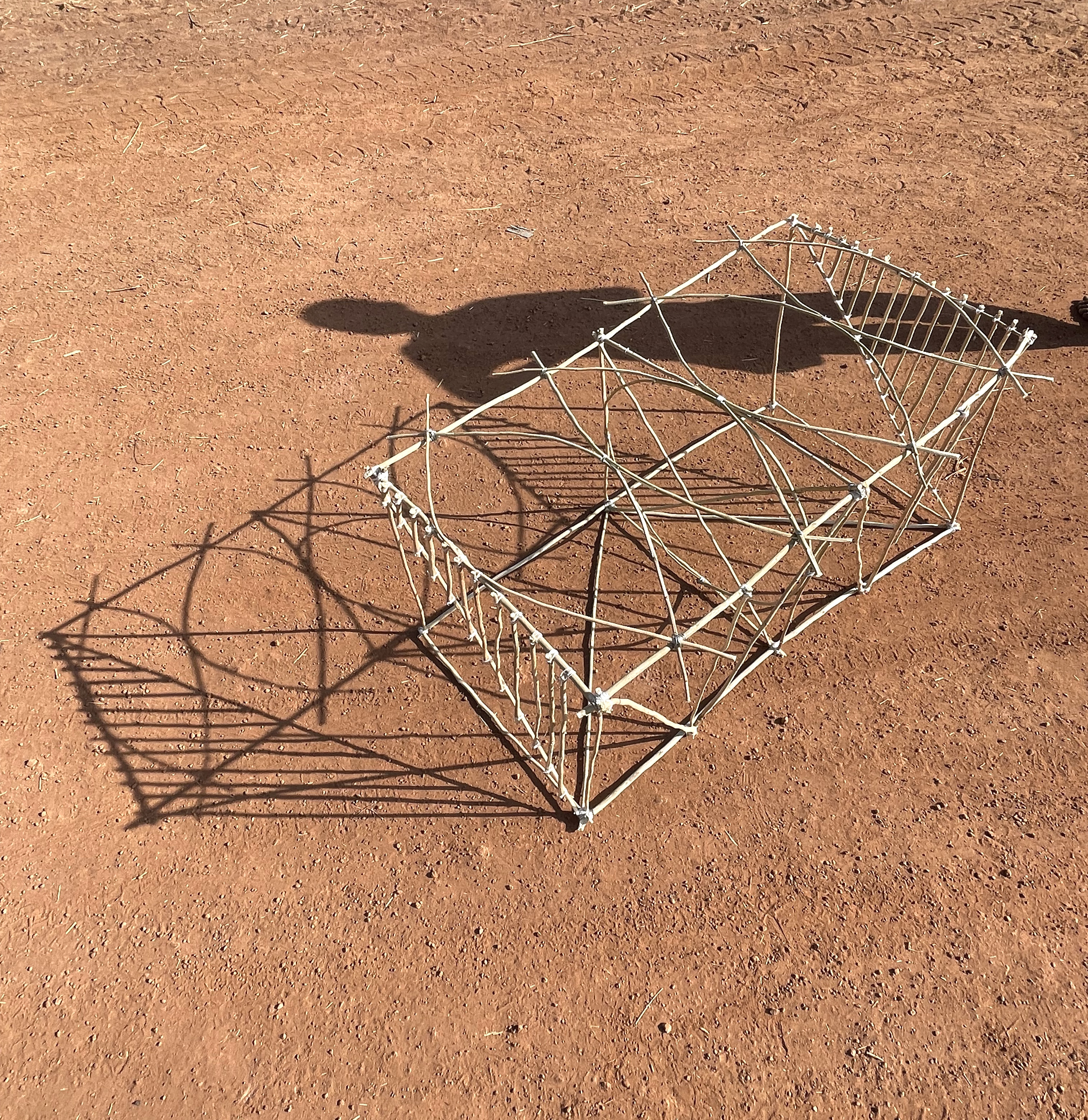
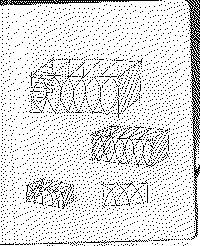

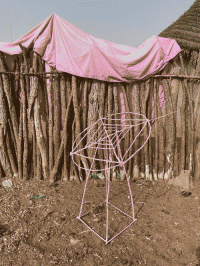
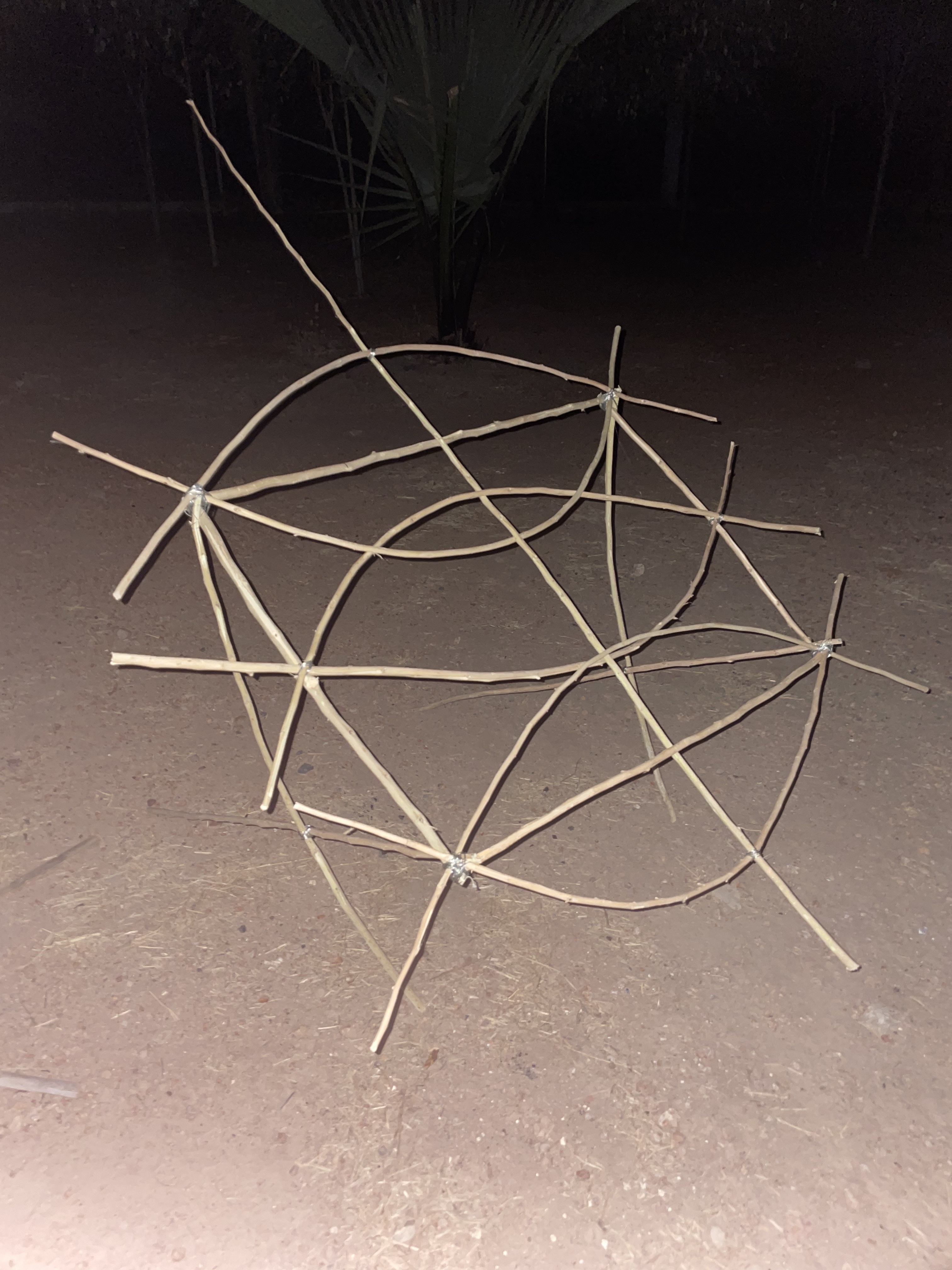
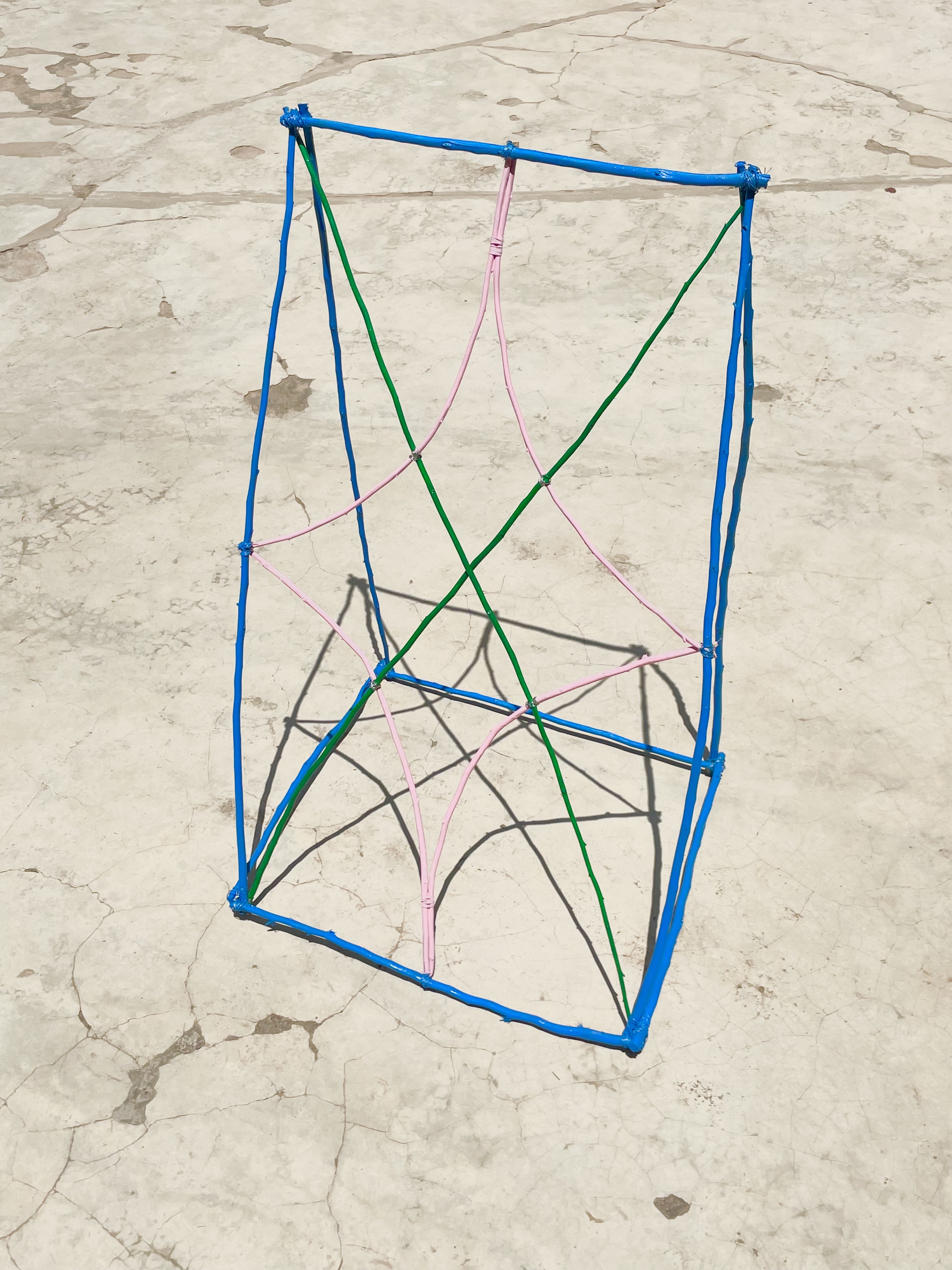
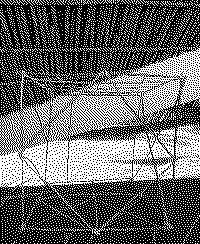
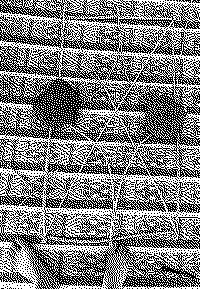
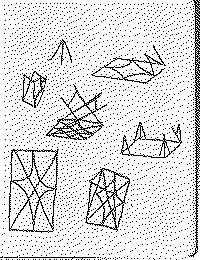
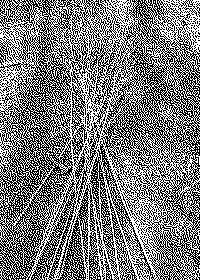
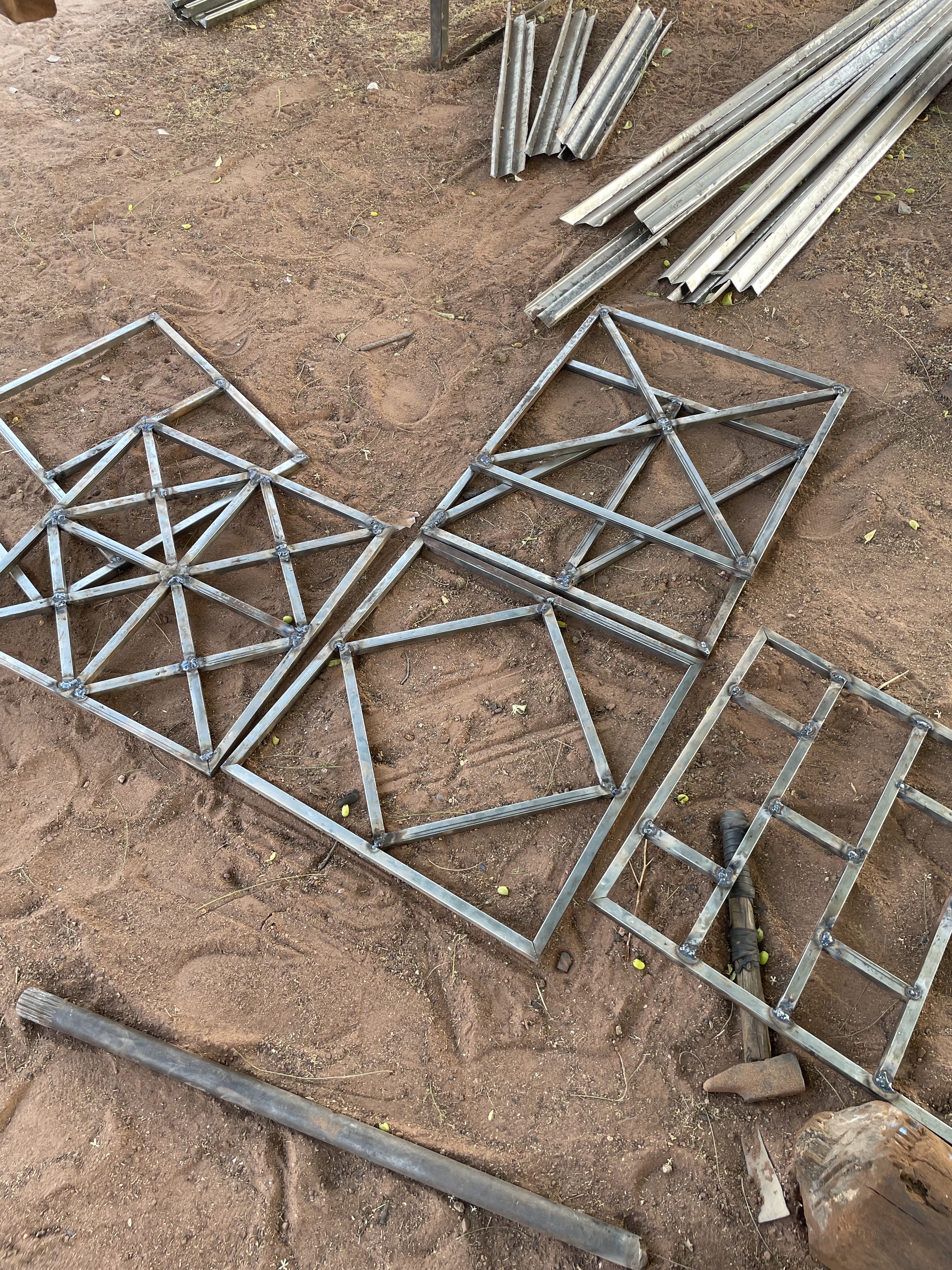
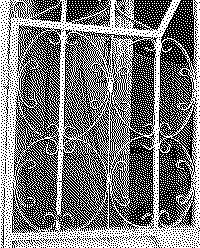
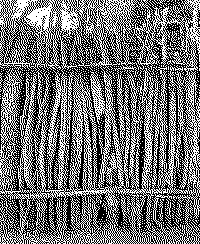
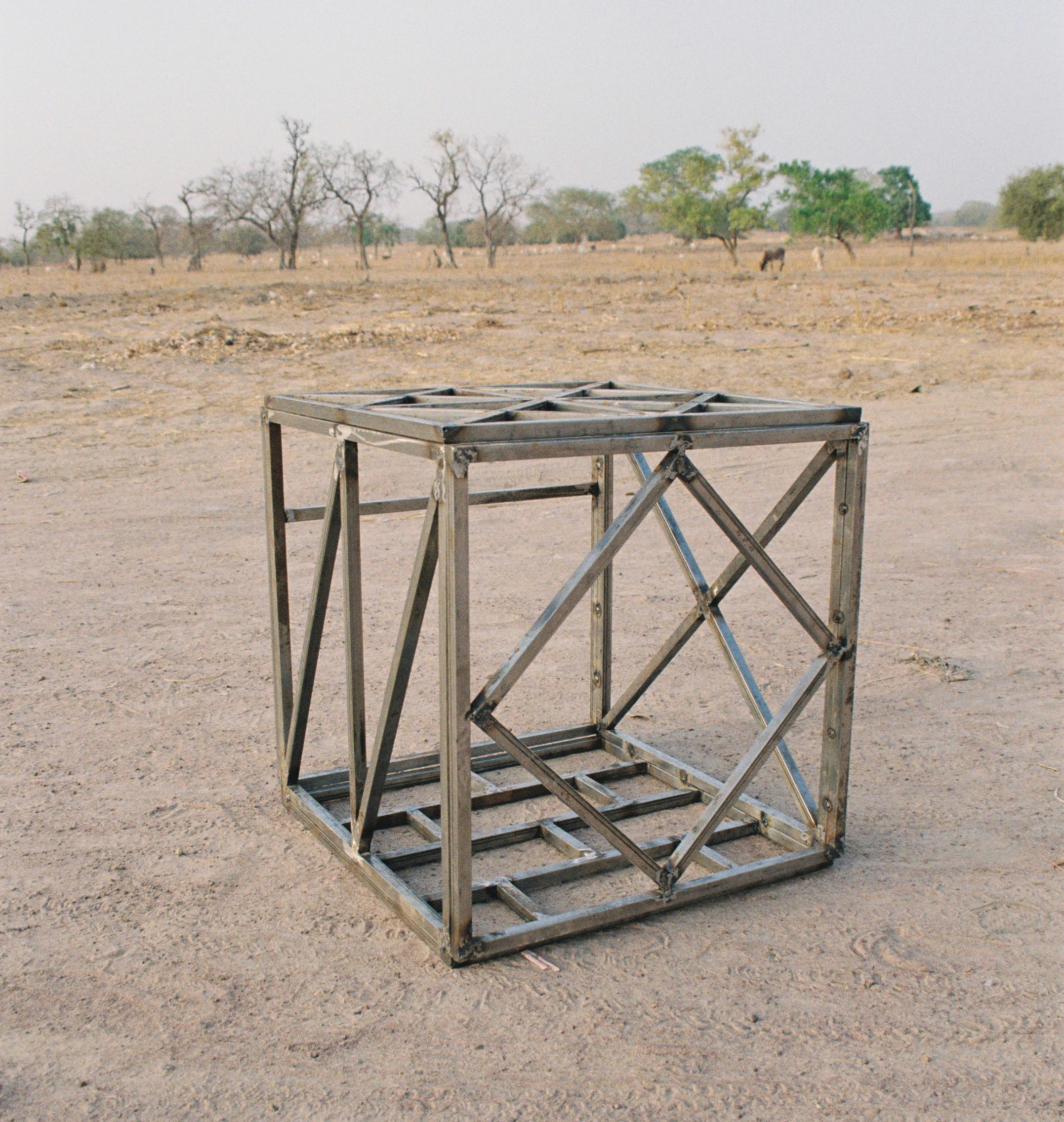
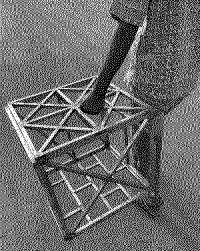
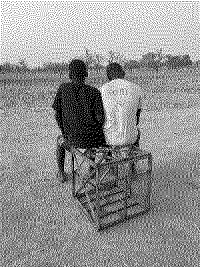
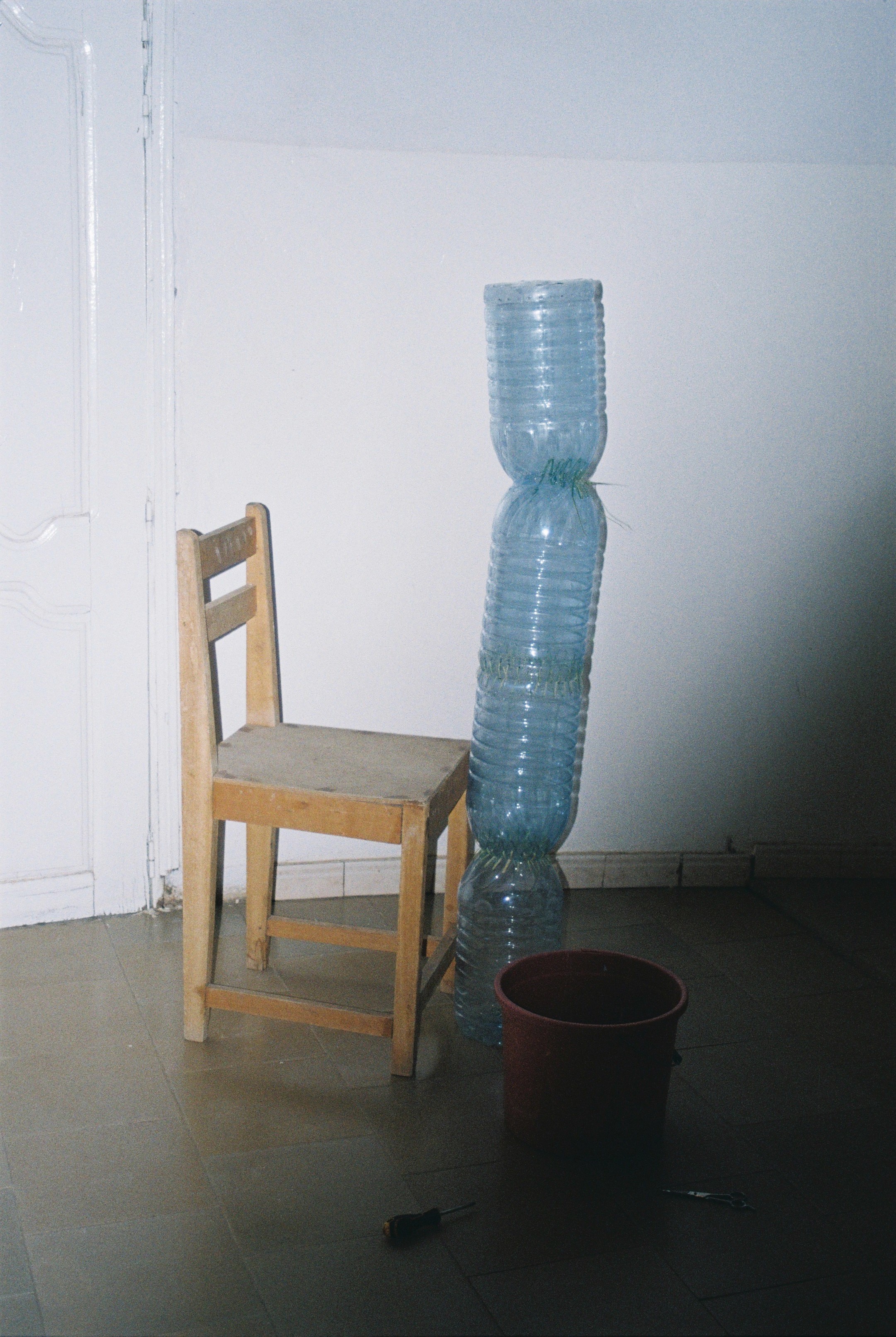
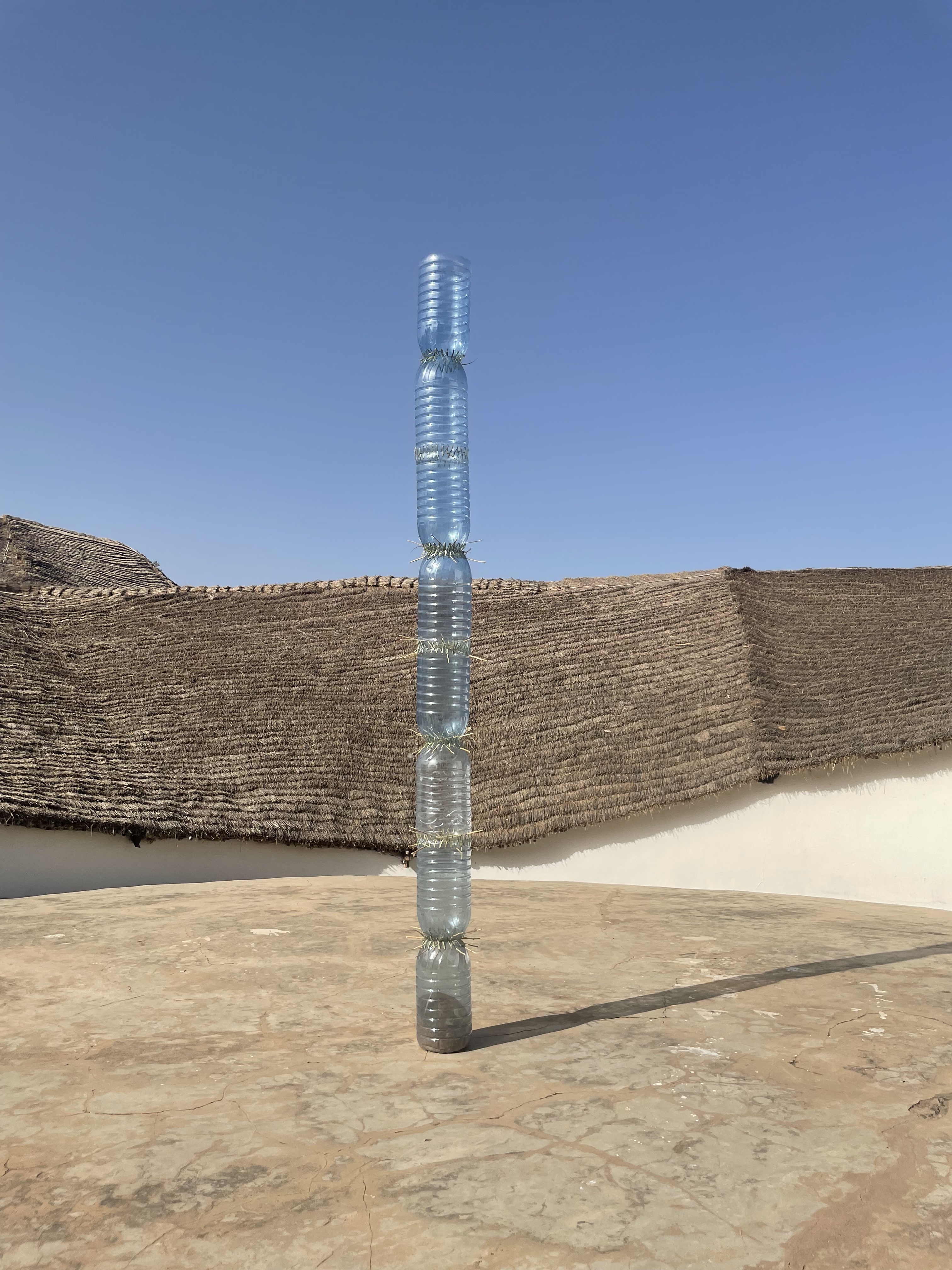
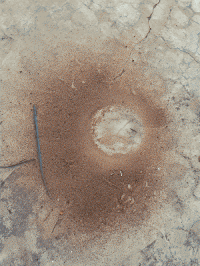
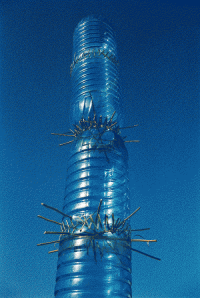
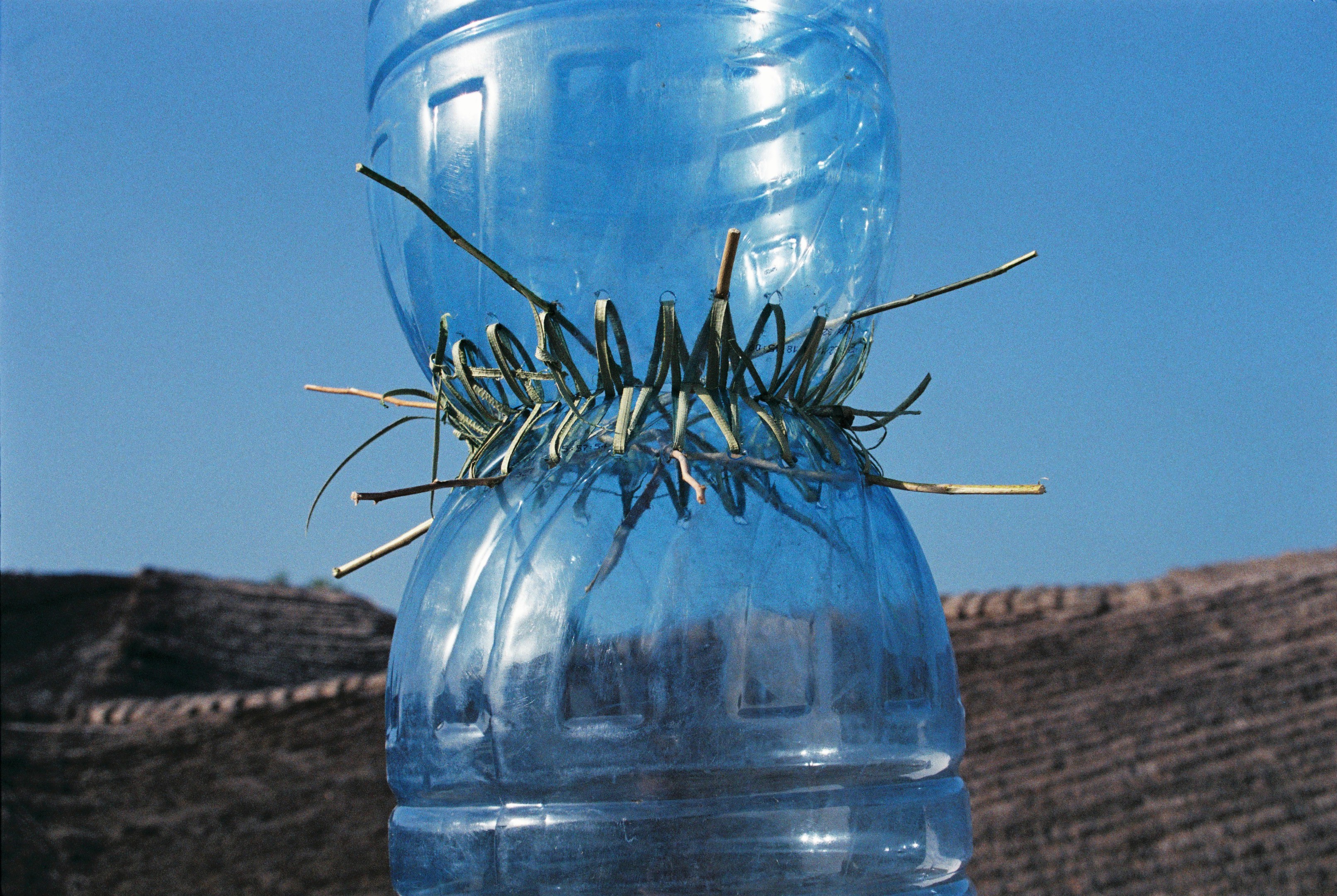
- "Sun Trap No. 1" wild wood & wire 80 x 35 x 40 cm
- "Sun Trap No. 5" wild wood, wire, exterior paint 100 x 100 x 65 cm
- "Piège à soleil n°4" branches de bois, fil de fer
- "Sun Trap No. 3" wild wood, wire, exterior paint 80 x 35 x 30 cm
- welded iron frames before assembly at Babakar Gueye's workshop
- "Doumbouru" welded square iron tubes, 50 x 50 x 50 cm
- "The Empty Tower" under construction
- "The Empty Tower" 20L plastic bottle, palm leaf, wooden branch & red sand 300 x 25 cm
- "Detail of the stitching on 'The Empty Tower'"